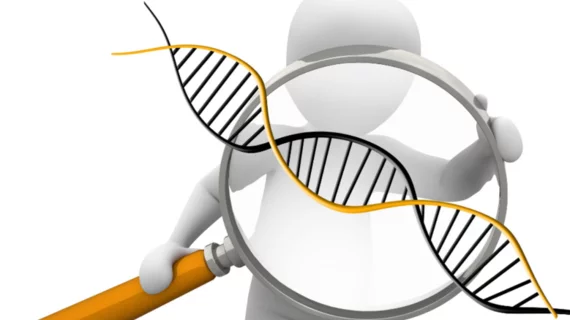European Society of Cardiology publishes new genetic testing guidelines for heart conditions
Citing significant advances in genomic technology over the past decade, an international consensus document published in EP Europace on April 4 offers new recommendations on genetic testing for inherited cardiac diseases.
“This is now the reference document that all clinicians should use to decide whether genetic testing is indicated for patients with inherited cardiac diseases and their relatives,” said lead author Professor Arthur Wilde, MD, PhD, of the Academic Medical Centre, affiliated with the University of Amsterdam in the Netherlands, in an ESC statement. “We provide strict criteria on who should be assessed and recommend which genes should be examined.”
The document, which was also presented at the annual meeting of the European Heart Rhythm Association, notes that the aim of genetic testing in patients with inherited cardiac disease is to determine the cause of the disease. In certain instances, the ability to pinpoint a genetic cause may offer useful insight into the patient’s condition and how to move forward.
“In some conditions this helps clinicians make a precise diagnosis, provides information about prognosis, and determines the treatment,” the ESC statement said.
Within the document, the authors give detailed guidance on whether and when genetic testing should be recommended for patients with five groups of heart conditions: inherited arrhythmia syndromes; cardiomyopathies; sudden cardiac death or survivors of unexplained cardiac arrest; congenital heart disease; and coronary artery disease and heart failure (with the paper noting that the last category can in a sense be considered a superset of the cardiomyopathy section).
In some instances, the document notes, genetic testing is also recommended for family members of patients with inherited cardiac diseases.
“Genetic testing has been recommended for a number of inherited cardiac conditions for several years and has become a standard aspect of clinical management in affected families. Recommendations for cascade screening and the age at which this should be performed are disease- and sometimes gene-specific,” Wilde and co-authors wrote.
In general, the authors write, cardiovascular disorders fall into broad categories: Mendelian cardiovascular disorders, caused by the inheritance of just one or two genetic variants, and disorders with complex inheritance, with multiple genetic variants that are potentially contributing factors.
In both categories, environmental and other non-genetic factors also contribute to the ultimate phenotypic expression, according to the document. However, Mendelian disorders often cluster in families, which may indicate an increased tilt toward family member screening in certain cases.
“In Mendelian cardiovascular disorders with potentially devastating initial manifestations, such as SCD or aortic dissection, appropriate and prompt identification of individuals at risk is imperative,” the authors wrote. “Such clinical genetic testing for these single-gene disorders has been shown to be cost-effective and can be considered a success story in the application of genetics into clinical practice.”
Before genetic testing is performed, the authors recommend genetic counseling for family members to inform them about the potentially life-changing consequences of a positive diagnosis.
“For instance, if an individual has no symptoms but his or her sibling has a serious inherited cardiac disease, the first question should be ‘do you want to know whether you have this condition, yes or no?’” Wilde said in the ESC statement. “A diagnosis may trigger difficulties with insurance, getting a mortgage, and so on. He or she needs to be informed before making any decisions.”
Of course, any decision should also take into consideration the potential benefits for patients and their families, both now and in the future. Noting the continued progress being made in gene therapy, the authors foresee a future where clinical applications may evolve even further with further research.
“Looking to the future, with the advances being made in the field of gene therapy, the identification of the patient’s fundamental disease-causative substrate may enable not only genotype-guided therapies but also gene-specific, even pathogenic variant-specific therapies.”
Related Cardiac Genetic Testing Content:
Combined genetic testing for cardiomyopathies and arrhythmias yields positive results
What cardiologists know, and don’t know, about genetic testing for heart disease
Cardiologists identify 162 genes responsible for coronary heart disease
